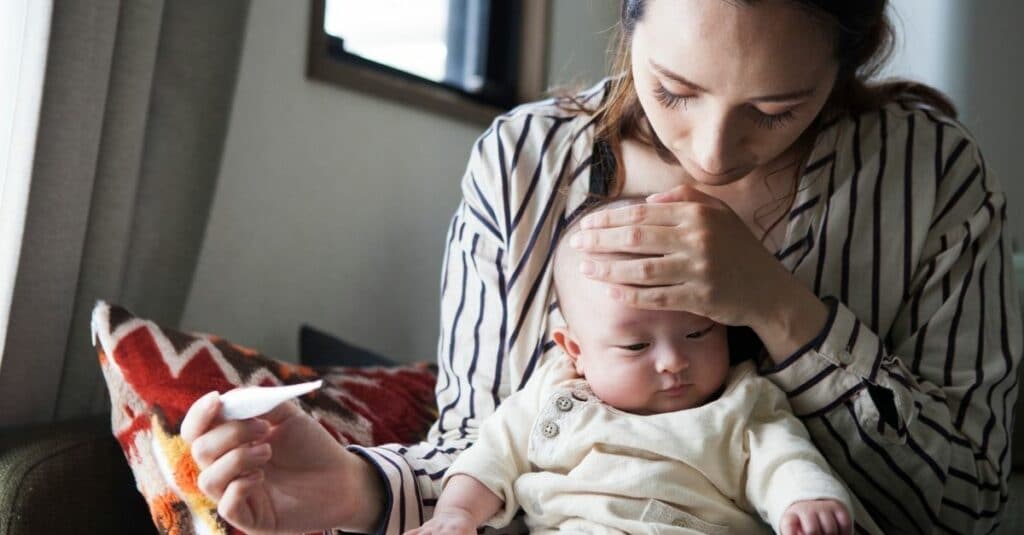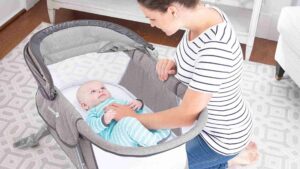Here are the common causes of newborn fevers and what you can do about them.

You pick up your baby daughter and notice she seems unusually warm. You kiss her forehead – yes, definitely much hotter than usual. Could she have a fever? What could be causing it, and what should you do?
Your first step should be to take the baby’s temperature, either rectally or under the baby’s armpit. (Using a thermometer in the baby’s ear or mouth is not recommended until your child is older; the forehead strips and soother-type thermometers are not considered accurate enough.)
When taking the temperature rectally, anything over 38 degrees is a fever. When taking the temperature under the baby’s arm, anything over 37.3 degrees is a fever.
Fevers are rare in young babies, so if your baby is under three months old and has a temperature over 38 degrees (taken rectally), you should go to the emergency room of the hospital or arrange to see your doctor right away. If your baby is over three months but under six months, and has a temperature over 39 degrees (take rectally), again, take the baby to the emergency room or doctor’s office.
If your baby is over six months, though, you can wait until she’s had the fever for 72 hours before going to see a doctor. Do watch for other signs of illness, such as lethargy, vomiting, signs of dehydration or a rash, and see a doctor right away if any of these are present.
A fever is a sign that your baby has an infection – in fact, a fever is one of the strategies our bodies use to fight off infections. It could be a viral infection such as a cold, flu or chickenpox, or it could be a bacterial infection such as an ear infection, bladder infection, or pneumonia. Fever is also a common reaction after immunizations.
Give your feverish baby frequent feedings to help prevent dehydration. You’ll probably find that she wants to sleep more than usual, and that’s fine. Ask your doctor about whether over-the-counter fever-reducing medications are okay and what the dose should be.
One thing to watch for: febrile convulsions. In some babies, a rapidly – rising fever can cause a seizure (usually lasting less than 20 seconds). This doesn’t mean that your child has epilepsy or that the seizures will continue because most children grow up out of them. However, the first time this happens you should go to the emergency room quickly to have your baby checked out. Don’t try to restrain the baby during a seizure, but do remove any food (or objects like a soother) from her mouth. If the seizure continues for three minutes or longer, call 911 for an ambulance.

Carly Link, a 33-year old mother of two toddlers. She is a parent and goes through a lot of the usual parenting difficulties herself. Carly shares all her experiences and knowledge about the best baby products through this blog.








